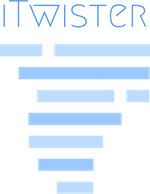Author: Terry Fallon
As the nights get cooler, and the trees begin to change color, there is no doubt that fall is on the way. And with fall comes flu season. This year, in particular, many are worried about the H1N1 virus, commonly referred to as “swine flu.†Many are concerned about the reported shortage of H1N1 vaccine.
Because of the serious threat posed by this strain of flu, health authorities are on alert. Unfortunately, however, the US health department reports that 120 million doses of swine flu vaccine will be required to protect the population. Only one third of that number will be available in October when flu season begins!

What is the reason for this shortage? Dr. Robin Robinson, of the US Dept of HHS (Health & Human Services) was quoted in Reuters (8/18/09) as stating: “We’re trying to bring on more manufacturing…hopefully there are ways to bring that number up.â€
The Dept of HHS is attempting to add new manufacturing companies because the logjam seems to lie with current capacity.
Since there is a shortage of H1N1 vaccine, the supply will not cover the entire population. Accordingly, the government is planing to ration the swine flu vaccine. As flu season begins, the only people that will be able to be inoculated are pregnant women, people who work in public health, and children that are under the age of four.
How serious is the problem? Even though the H1N1 vaccination will be the largest in human history, the White House Council for Science has estimated that there could be 30,000 to 90,000 deaths resulting from the swine flu strain during this 2009 flu season.
Are public health officials concerned? Naturally. They are worried that people that do not receive vaccinations will become ill.
The World Health Organization has declared a pandemic, because the H1N1 flu strain affects the entire globe, not just the United States.
Reportedly, dosages available in the United States should increase to about 80 million by early November (well into the flu season), according to health officials. Even so, one third of the population will remain without vaccine.
There is no question that there is a shortage of H1N1 vaccine.
As we go into this flu season, avoid public places like schools and large public buildings if you possibly can. Do your best to stay away from people who are coughing or sneezing. Practice ritual hand washing with soap and hot water. When a sink is not available, use hand sanitizers. And if you become ill, stay home! Isolate yourself or your sick family members so that they will not infect others!
About the Author:
Read the informative free book “Surviving Pandemic Flu,” that you may download immediately at: http://www.aboutthefamily.com/familyhealth/swine-flu-pandemic.
This report is simple to read and discusses how to protect your family due to the shortage of H1N1 vaccinethat will occur during the fall and winter of 2009.
Terry Fallon writes articles and features that pertain to family health, happiness, and well being.


